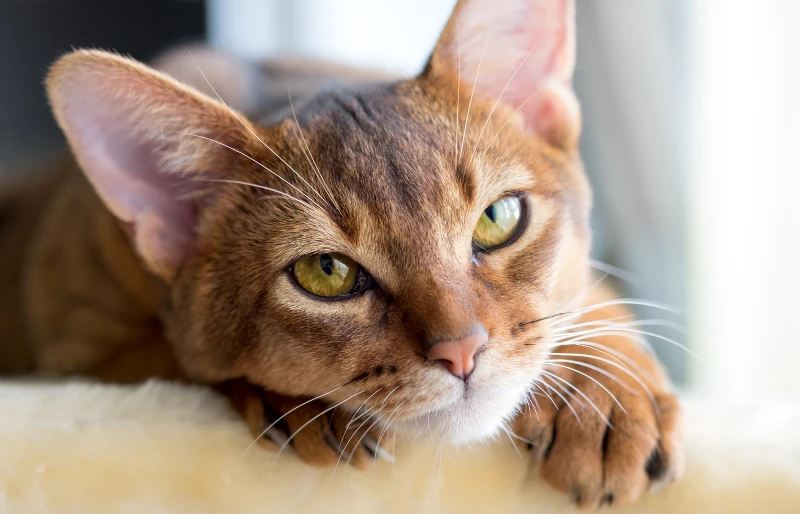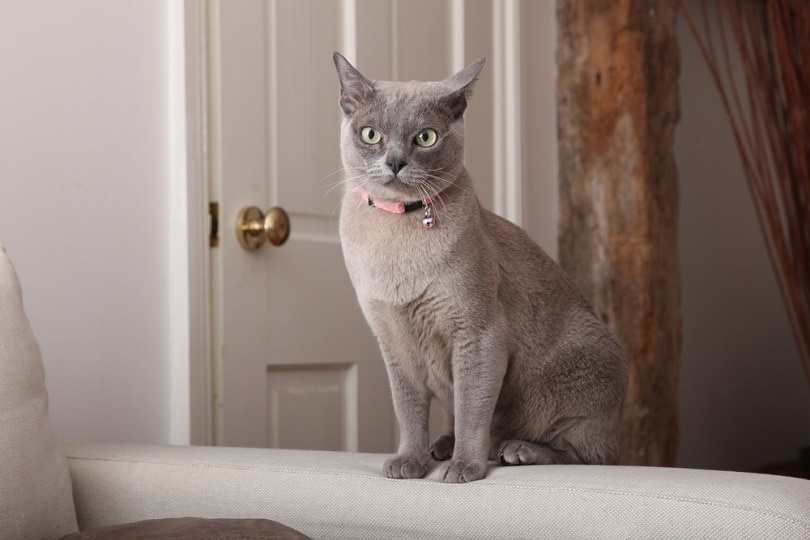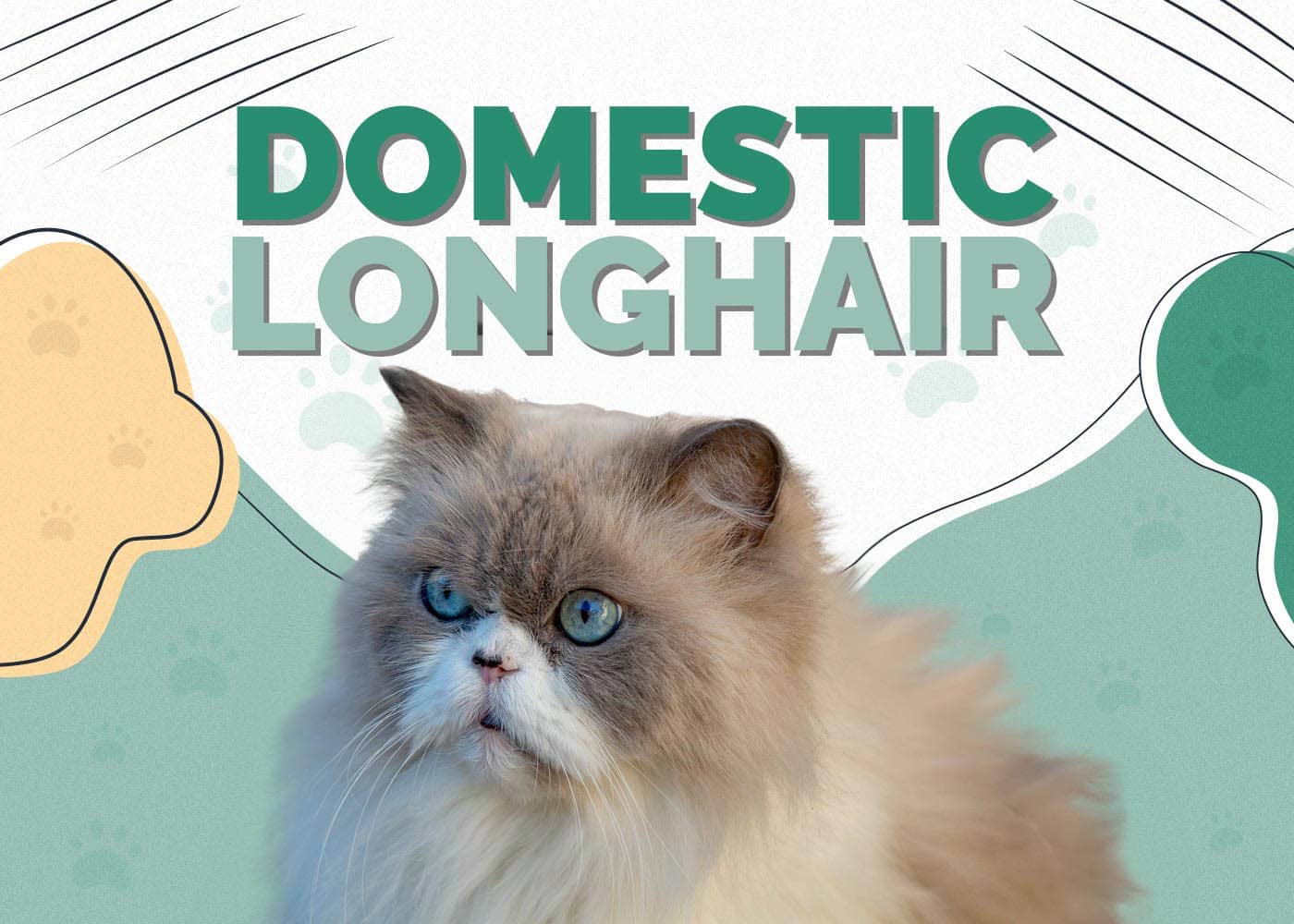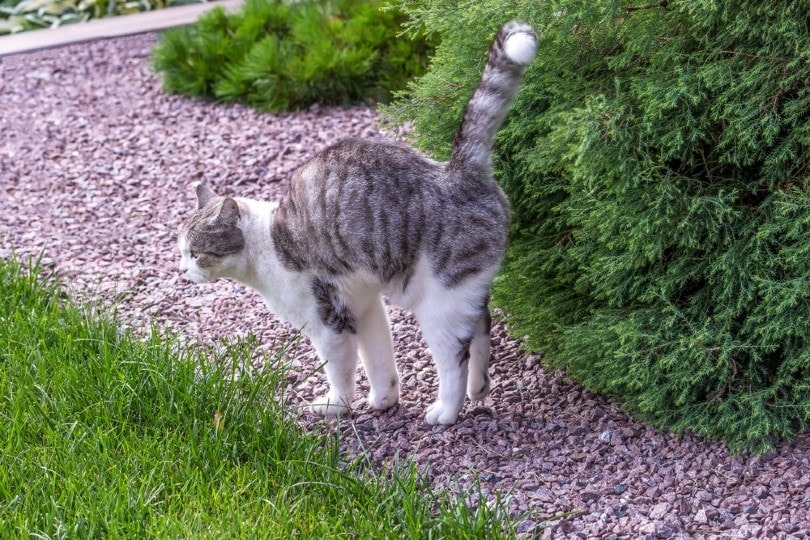Is an Abyssinian Cat Hypoallergenic? Breed Facts & Allergy Tips

By Misty Layne
Updated on

Click to Skip Ahead
Cats are amazing pets, but not so much if you’re allergic to them. However, if you’re allergic to felines but are determined to still be a cat parent, you can look for a breed considered to be more hypoallergenic.
Don’t be fooled by the term “hypoallergenic”, though; no cat is 100% free from allergens. Instead, some breeds shed less or produce fewer of the proteins that cause allergies in people, so they’re considered more hypoallergenic. These breeds may still upset your allergies some, but hopefully not as much. It is always recommended that you speak to your doctor about your allergies before adopting a pet.
If you’ve been eyeing the Abyssinian, you’ll be disappointed to learn Abyssinians aren’t considered hypoallergenic. But the good news is this cat tends to shed less and is likely better for those with milder allergies. Read on to find out if the Abyssinian is right for you!
What Is an Abyssinian?
The Abyssinian is a feline with somewhat mysterious origins, as no one is entirely sure where they came from. They have a similar look to the cats found in ancient Egyptian artwork, but most believe they originated in Ethiopia (which was formerly named Abyssinia), although this is debated. At any rate, they appeared in Europe in the 1800s, and the rest is history!
These kitties are popular due to their fantastic temperaments. The breed is sociable, affectionate, and incredibly playful. They have an inquisitive nature that, combined with their love of climbing, will find them exploring every inch of your home. The Abyssinian is also smart and can be trained to do a few things, like walk on a leash!
What Causes Pet Allergies?
If you’re allergic to animals, you might believe you’re allergic to their fur, but that isn’t what causes pet allergies. Rather, it’s a protein 1, (Fel d 1), found in saliva, skin cells, and urine that causes your immune system to have a reaction. Fur that is shed can carry dander (which is just dead skin cells), though, which is why so many think fur is the cause of their allergies.
There are around 8 currently recognized feline allergen proteins Fel d 1 to 8 but most allergies are to the Fel d 1 protein.
When you breathe in dander, you’re also breathing in the protein that causes allergies, which is where the red, itchy eyes, runny nose, and sneezing can come from. Likewise, this protein can affect you if your pet licks you or if you come into contact with urine.
However, people have different levels of sensitivity to these proteins, so some have milder allergies than others.

Is an Abyssinian Suitable for People With Allergies?
If you’re highly allergic to cats, you’ll more than likely still have allergy symptoms with an Abyssinian. However, if you only have mild allergies, the Abyssinian may be a breed you can have in your home. Abyssinians still shed, but they tend to shed less than other breeds. This means that Abyssinians can still trigger allergies, but maybe less than other breeds.
Ways to Reduce Allergic Reactions to Cats
If you have your heart set on an Abyssinian, there are steps you can take to reduce your exposure to the allergens they produce.
- Don’t let your cat come into the bedroom. We don’t just mean not letting your pet sleep with you; keep your cat out at all times. You spend a lot of time in your bedroom and letting the cat in at any point increases allergens in the room.
- If someone else in your home is not allergic to cats, ask them to do the weekly brushing of your Abyssinian and clean the litter box so that you don’t come into contact with allergens as often. If you have to do these things yourself, wear a mask and gloves while you do.
- Always wash your hands after touching your pet.
- Shower and change your clothes after spending time with your pet.
- Clean your home regularly. Vacuum, sweep floors, wipe down counters and cabinets, and wash blankets and fabrics your cat gets on often.
- Dander can get into your vents, which then circulates to all areas of your home. To reduce the amount of dander floating around, put a material like cheesecloth or other filter over your vents. This lets air through while trapping dander to prevent it from circulating. HEPA filters are an even better option if you can.
- You may also talk to your veterinarian about feeding your felines Purina Live Clear cat food. This food can actually help reduce the amount of Fel D 1 that your cat produces!
Hypoallergenic Cats

Think the Abyssinian might be too harsh for your allergies? There are several cat breeds that are considered more hypoallergenic that you can take a look at instead! These include:
There’s plenty to love about all these cat breeds, so check them out to see if one is right for you!
Conclusion
The Abyssinian is not considered a hypoallergenic cat breed. However, these felines shed less, produce less dander, and produce fewer proteins responsible for allergic reactions. If you only have mild allergies, you might do fine with the Abyssinian (though you may still have an allergy attack here or there). If your pet allergies are severe, though, it’s best to go with a different cat breed.
Featured Image Credit: Ihar Palitanski, Shutterstock












